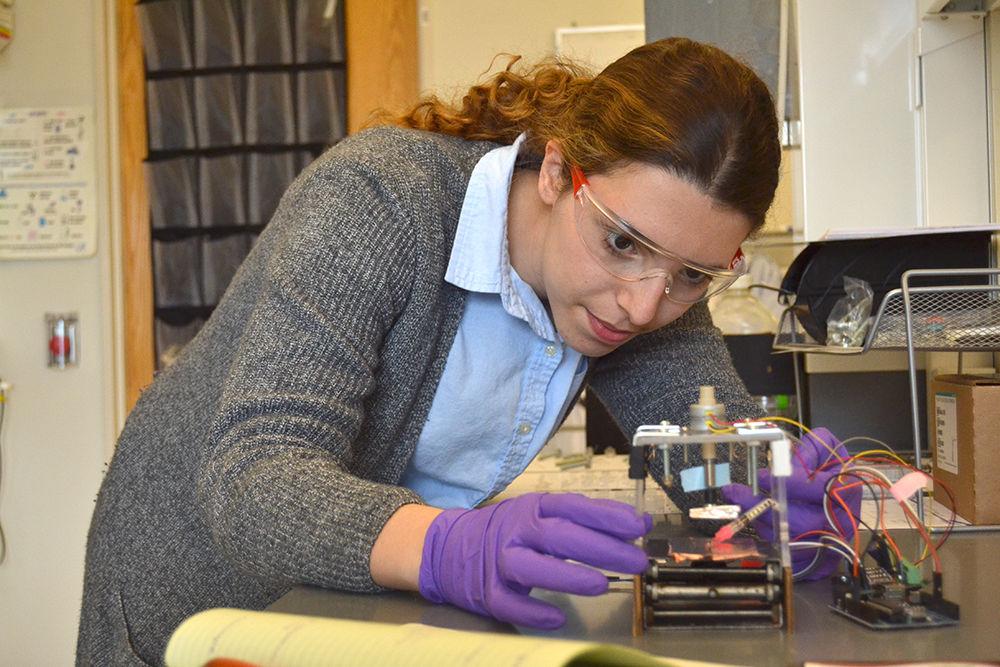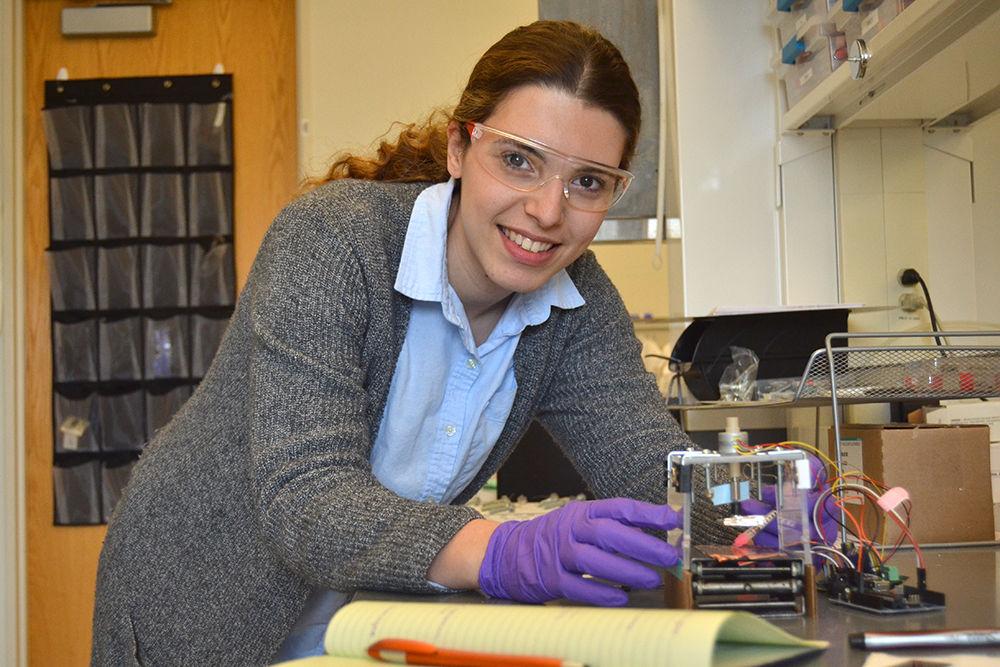Alex Hsain, a junior studying materials science and engineering, was NC State’s recipient of the 2017 Truman Scholarship. She was awarded the scholarship in recognition of her work as an undergraduate researcher in the field of sustainable energy and passion for public service and policy. Technician spoke with her Monday.
Tell me about yourself.
To speak about myself, I usually speak about my parents because they’ve been such an integral part of my cause and my development. My parents moved here, to Virginia, in 1999, and my mom, she won a visa as a lottery. It was really a matter of luck, because my dad has been applying for the visa for like 10 years, but my mom, in Morocco, applied for the visa once and got it. My parents have really been influential for me, and my best support system really, but my dad is an engineer and my mom is an artist.
It was a very versatile household, and that really shaped who I am as a person. I was always really creative, and I also wanted to maybe go into art or something like that, but I started working for my dad’s lab when I was in high school and he was kind of a role model for me because he showed me that in engineering, there are other ways to be creative. So, I kind of started with that, but I really do see myself as a reflection of my parents and the values of American citizenship that they’ve built in me … They really shaped my appreciation and my patriotism for the United States.
What does the Truman Scholarship mean to you?
The biggest thing the Truman Scholarship [means] to me is [that it is] a pathway for public service, and when I came to NC State, my motivation was to pursue engineering because I saw it as the best public service that I could give to other people. My dad went into engineering because he wanted to install wells into the irrigation system of his home country. They didn’t have access to water like we do in the United States. So, my motivation was to somehow help people with the technical education that I’ve gained.
The Truman [Scholarship] is a community, first and foremost, of people who are dedicated to public service, and I think in engineering and the sciences as well, it’s sometimes difficult to go into public service. There’s almost this kind of elitism associated with the sciences. Think for example, like the March [for Science], there are a lot of people in academia that are against advocacy for science. It’s not because they don’t care about science, it’s just that they see science as alienated from politics, and I don’t think that could be further from the truth.
I think our policy makers, the people who are creating the rules by which our society is governed, should be very well-versed in science and decision-making practices that are centered around evidence and scientific inquiry and the scientific method. The Truman [Scholarship], for me, is truly a pathway [to] science advocacy, not just becoming a scientist but also becoming a scientist of [climate], of public policy and [of] politics.
What are your plans for the future?
As of right now, I would like to pursue a Ph.D. in electrical materials or electrical engineering, and the reason for this is [that] my undergraduate research has been heavily involved in that field. I think that would also enable me to start with a technical foundation for technology that has impact in sustainability.
Right now, for example, I’m working on an energy-harvesting system that can be coupled with portable electronics, and I do that as a way to offset carbon footprint and the demand that we have for electricity. So, I hope to pursue this Ph.D. so that I can better create other types of technology that offset our carbon emissions, but also to have the technical foundation on which I can advise policy makers to push technology to invest in … I’d like being an adviser for policy-makers eventually after getting my Ph.D.
With finals coming up, do you have any piece of advice to share with other students?
I would really encourage people to just be honest with themselves. I know that that’s a lot easier said than done, but in drawing up the application, when I was filling up the Trumans, you sometimes think ‘what do other people want to hear,’ or ‘what is the pathway that my parents want me to follow or society wants me to follow?’ … At the end of the day, it’s your life, it’s your career, and I think really just being honest with yourself, in your goals and your intentions is going to take you a long way. Especially for someone who is coming from a different background and not necessarily used to the environment that we have, so many abundant opportunities, I think taking advantage of every opportunity and also being flexible.
For example, this past summer, I was trying to look for internships or programs I could do, but my mom ended up getting sick and I didn’t find an internship, so instead of staying at home, I decided to do research at the lab for a summer, and that lead to me presenting in a conference and getting more attention for my work, and eventually it really led me to my success right now.
So, I think being flexible and not letting one hurdle diminish you or lead you astray … Just to summarize, being honest with yourself, being flexible and then being able to get past the struggles that you might be facing currently.
Is there anything else you want to add?
I really encourage people who are considering public service to find that one thing that they really care about and find ways that they can address it on a local scale. You don’t have to go and end world hunger, but there might be opportunities to volunteer at a community garden or just get involved locally, and that will not only inspire you as a person, but will also elevate you in ways that you will be able to help more people in the future.
For more information about the Harry S. Truman Scholarship Foundation, visit their website.
Hanan* "Alex" Hsain, a junior studying materials science and engineering, sets up an experiment in her lab in Engineering Building I on Centennial Campus on Monday. Hsain was a recipient of the 2017 Truman Scholarship. "My current work on reverse electrowetting energy harvesting aims to offset our carbon footprint by harnessing energy from ambient vibrations. The Truman Scholarship will aid me furthering our energy independence through energy research, which I hope to pursue in grad school," Hsain said.
*Editor's note: this caption originally misspelled Hsain's first name.









